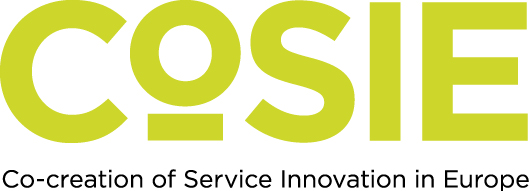Co-creation as a value-led practice?

Back in February 2020, I was in Utrecht at the ‘Experiences in co-creation of public services’ seminar co-facilitating a workshop that asked participants to reflect upon what citizen engagement activities were deemed ‘co-creative’ and what were examples of ‘consultation’. People attending the workshop were asked to position things like ‘surveys’ and ‘hackathons’ on a spectrum, with co-creation at one end and consultation at the opposite. When positioning ‘focus groups’ on this continuum, a discussion broke out that essentially boiled down to the key point of the workshop (and as I’ve written elsewhere) – what you do is not really what makes something co-creative or not, it is how you do it that really matters.
With this in mind, I’d like to propose that we begin to think about co-creation not as a process or set of activities, but rather as a value-led practice. What I mean in essence is that it is a way of doing things that is governed and underpinned by a fundamental set of core values. During CoSIE, we have gathered over 200 stories from across Europe of people’s experiences of public services and of co-creation processes. So, to start thinking about what the values are that inform co-creation as a practice, I thought I’d take you on a whistle-stop tour through some of them and see what we find.
Let’s start in Spain. One of the entrepreneurs supported through the Co-Crea-Te project reflected on what made that specific co-working and business mentoring space different than other similar offers, stating that:
We felt tremendous support from the mentors and so we have achieved things that without being here would have been impossible. The atmosphere here is very healthy, very calm and colleagues are always willing to help.
This was echoed by other entrepreneurs and from this we can see that it is the atmosphere – or the environment created – in the space that is key to its success. Underpinning this are seemingly similar values of being supportive and caring. Essentially, it is important that, for co-creation to occur, the professionals involved are emotionally invested, and are not just there to collect a pay check.
Over in Estonia a young woman involved in a co-creation pilot reflected on her experience of participating in a storytelling workshop, and commented on how it was also the environment that was created that was the key to the success of the workshop. Speaking about how difficult it is culturally to get Estonian people to “open up”, she details how “making the space really comfortable”, helped people to share their experiences and stories about life in a rural community with one another. What this space enabled was honesty built on mutual trust. Without these in place, real conversations cannot occur and we all know how quickly co-creation can fall apart when authentic communication between people isn’t happening.
Moving over to the Netherlands where people shared with us their experience of unemployment, a woman spoke about her issues with the tax office. She describes how “nobody has a voice only those in power at the unemployment services – with one strike of a pen they mess up your lives.” This woman now believes it’s better not to work and that it is better to “remain dependent” as “you stay out of problems”. It is clear that this environment is not one in which co-creation can occur. There is distrust and this has been caused by inequalities in power. Power is a fundamental part of co-creation. Where one actor has more than another, and this isn’t addressed – how can co-creation be possible? Therefore, let’s throw equity into the mix as a value that can help lead us on our co-creation journeys.
For our final stop, we are heading over to Hungary, where a household economy pilot seems to have galvanised communities to work together towards common goals. One resident comments on how it is the interplay of independence and togetherness that is propelling their local action forward. As he describes, the residents involved have “autonomous thinking” but this is done “in a way that they think together autonomously”. What we see here is the interplay of two possibly conflicting values of independence and interdependence. From the sentiments in this and other stories, the Hungarian pilot seems to be navigating this terrain effectively, by respecting the individual expertise that people bring and understanding that they are individuals, whilst simultaneously connecting this to a sense of community and collaboration.
I should say, that this is not intended to be a definitive list of values that underpin co-creation – there are many more that are springing to mind as I write this! Nor was this list produced by any kind of systematic analysis of the lived experience stories we’ve gathered during CoSIE… maybe I’ll get around to doing that elsewhere in this project. Instead, this post is best viewed as a conversation starter or perhaps, a provocation to ask us to reflect upon what really underpins what we do and how are they shaping it? Are the values of the governing structures in which we operate in conducive to or aligned with the ones that support co-creation – or are we swimming against the tide? When co-creation is viewed from this perspective, we advance from the simplicity of what and into the complexity and nuances of the how. And it is here where we must position ourselves in order to truly see what we are learning during this project.
Writer: Hayley Trowbridge, People’s Voice Media
